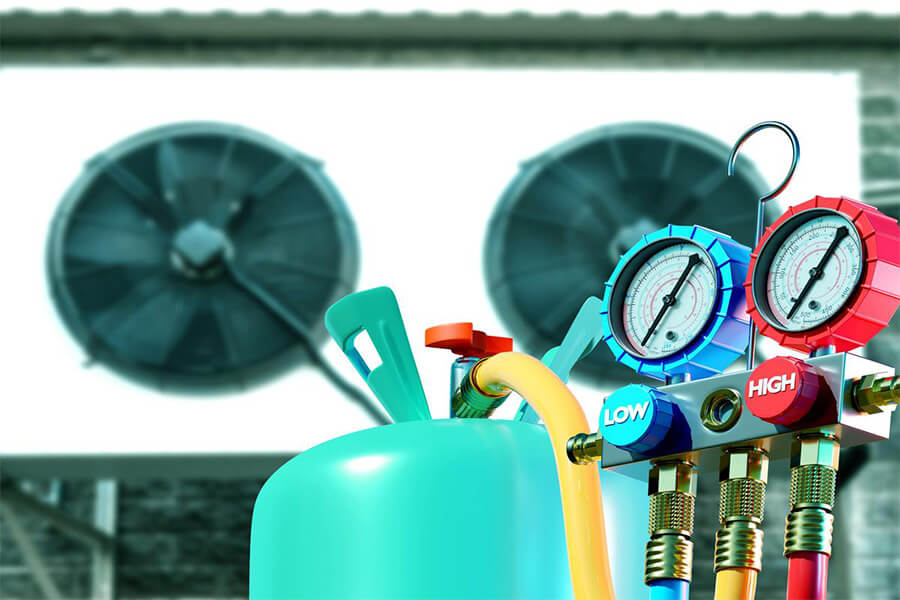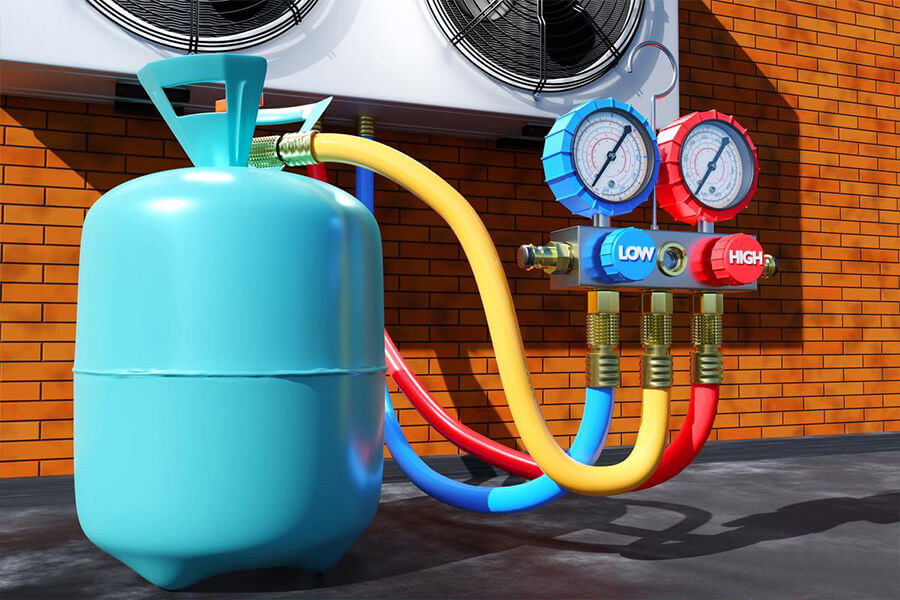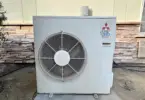Introduction:
When it comes to maintaining your mini split air conditioning system, understanding when and how often it needs to be serviced is crucial. One common question that homeowners often ask is how often mini splits need freon. We will explore the use of freon in mini-splits in this blog article and provide you with all the details you require.
Understanding Freon And Its Role In Mini Splits:
The chemical freon, known as refrigerant, cools the air in an air conditioning system. It allows the air conditioner to provide a cool, comfortable environment by absorbing heat from the inside air and releasing it outdoors.
The efficiency of mini splits is higher than that of conventional central air conditioning systems. The compressor and condenser of the outside unit are connected to the evaporator and fan of the indoor unit through a refrigerant line. Through this line, the refrigerant moves, taking heat from the inside air and releasing it outdoors.
Signs That Your Mini Split Needs Freon:
 While mini splits are designed to be a closed system, meaning the refrigerant should not need to be replenished, there are certain situations where additional Freon may be required. Here are some signs that your mini split might need a refrigerant recharge:
While mini splits are designed to be a closed system, meaning the refrigerant should not need to be replenished, there are certain situations where additional Freon may be required. Here are some signs that your mini split might need a refrigerant recharge:
- Insufficient cooling: If your mini split is no longer cooling your space effectively despite setting it at the desired temperature, it could indicate low refrigerant levels.
- Increased energy consumption: When a mini split lacks refrigerant, it must work harder to achieve the desired cooling, resulting in higher energy consumption. If you notice a sudden spike in your electricity bills, it could be due to low refrigerant levels.
- Frozen evaporator coil: Insufficient refrigerant can cause the evaporator coil to freeze. If you notice frost or ice buildup on the indoor unit, it indicates that your mini split needs additional Freon.
Factors Affecting the Frequency of Freon Recharge:
 Several factors can influence how often your mini split needs a refrigerant recharge. These include:
Several factors can influence how often your mini split needs a refrigerant recharge. These include:
- Leakage: The most common reason for low refrigerant levels is leakage. Over time, the refrigerant lines or connections may develop leaks, causing the Freon to escape. Leaks can be found and fixed with the help of routine maintenance and inspection.
- Installation quality: Improper installation can lead to leaks or inadequate refrigerant charge. Hiring a professional and experienced HVAC technician is essential to ensure the correct installation of your mini split system.
- System age: Older mini splits may require more frequent refrigerant recharges as the system components wear out over time. Regular maintenance can aid in spotting possible problems before they become more serious.
Maintaining Optimal Refrigerant Levels:
Regular maintenance ensures your mini split operates efficiently and requires fewer Freon recharges. Here are some maintenance tips:
- Schedule annual maintenance: Hire a professional HVAC technician to inspect and service your mini split system at least once a year. They can check for refrigerant leaks, clean the components, and ensure everything functions correctly.
- Keep the air filters clean: Dirty Filters can limit airflow and make your small split system work harder. To keep the filters performing at their best, clean or replace them frequently.
- Monitor for signs of leakage: Keep an eye out for any signs of refrigerant leakage, such as oil spots or hissing sounds near the refrigerant lines. Call a technician to inspect and fix the leak if you believe it exists.
Frequently Asked Questions:
Can Freon leak From A Mini Split?
Yes, freon can leak from a mini split. Leaks can occur due to various factors such as age, wear and tear, or faulty installation. If you suspect a freon leak, it is critical to have it repaired as soon as possible to prevent further damage to your unit.
How Can You Tell If Your Mini Split Is Low On Freon?
A few signs indicate your mini split may be low on freon. Inadequate cooling, longer cooling cycles, ice accumulation on the evaporator coil, and hissing or bubbling sounds from the unit are all examples. If you experience any of these symptoms, you should have a professional inspect the freon levels.
Can You Recharge Freon Yourself In A Mini Split?
Recharging freon in a mini split is not a DIY task. Special equipment and knowledge are required to add the right amount of freon. Using a licensed HVAC specialist to manage freon recharge is usually best.
Conclusion:
By following the above-mentioned maintenance practices and promptly addressing any issues, you can extend the lifespan of your mini-split system and minimize the frequency of Freon recharges.
Disclosure: We may get commissions for purchases made through links in this post.








